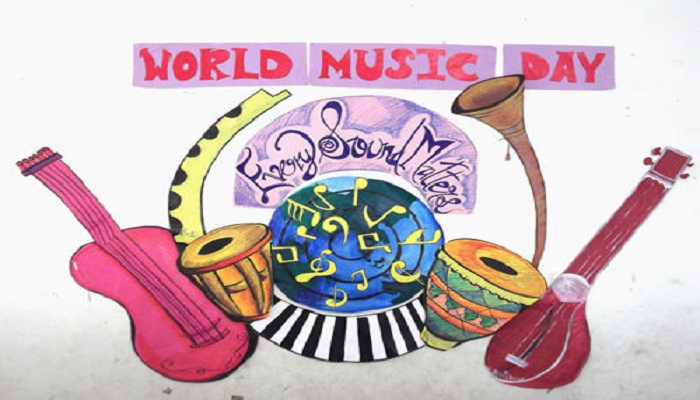
At each moment, there is a beat, a rhythm, a note that surrounds us – that is the music of the world. Though now we have structured genres and styles, at the core of it is world music, and that is the philosophy with which June 21 is celebrated as the ‘World Music Day’.
This is a great day when the world tunes in together to celebrate the magical gift of music.
Music should be interpreted not only as a means of entertainment but also as a means for holistic development of the human mind and soul; we look at music in a therapeutic form as well, recognising it as a way to heal. Here are 10 ways how music therapy works:
- It improves the quality of life for those patients who suffer memory loss: The ability to engage with music remains intact much after a person is diagnosed with Alzheimers or Dementia, which is why music therapy and association is often used to recall memories, reduce anger, improve communication skills and even physical coordination.
- Reduces side effects of cancer therapy: Listening to music apparently reduces anxiety associated with chemotherapy and radiotherapy. It can also suppress nausea and vomiting for patients receiving chemotherapy.
- Helps restore lost speech: There have been known cases where music therapy has helped people recovering from a traumatic brain injury. In cases where the speech has been affected, which is controlled by the left-brain region, it has been found that singing (which is connected to the right brain) can help people work around the injury to the left side of the brain. So, people can start by first singing their thoughts, to eventually dropping the melody.
- Improves visual and verbal skills: Practising a musical instrument will not only improve your musical abilities but it also helps in improving your visual and verbal skills and also your visual perception and cognition.
- Music helps alleviate your mood: Have you ever listened to a piece of music and smiled? Whether from the music itself or from, music taps into our emotional systems. Many people use this in a “therapeutic” way, listening to certain music that makes them feel a certain way. The ability for music to easily access our emotions is very beneficial for music therapists.
- Music enhances learning: Do you remember learning your first alphabets? Most of us learned them with the help of a song. The inherent structure and the emotional pull of music makes it an easy tool for teaching kids new ideas and concepts.
- Singing together brings us together: Music is often related to a social activity that helps bringing people from different parts of the world together and enjoy that particular moment. It also depicts that people like to be in sync with each other.
- Music can affect your judgement: Music can also affect the way people feel about a situation or about others, thereby impacting the way they judge.
- Improves attention: Depending on the kind of music you are listening to, it has been found that music can grab and hold the attention of the listener. This helps us improve our basic skills we need to function and succeed.
- Can be motivating: There are some people who really enjoy music and uplifting music can help motivate people, and even increase productivity level.

Post Your Comments